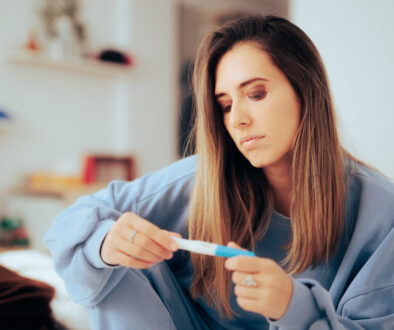When Can You Get Pregnant After Your Period?
Understanding your menstrual cycle is crucial to defining when you ovulate and calculating when you are most likely to get pregnant.
“Women should be aware that if they have an irregular period, it can make the ovulation days difficult to determine.” Said Dr. Martinelli. “When examining fertility, it’s important to realize that an egg can survive for about 24 hours after ovulation, and sperm can live inside a woman’s body for three days—though sometimes it’s possible for them to survive for five days. “
How long should a normal menstrual cycle last?
An average menstrual cycle lasts 28 days, defined from the first day of menstrual bleeding to the first day of bleeding of the next period. However, irregular periods are very common. An irregular period is defined as a cycle that varies by more than seven to nine days.
There are several reasons why women may have abnormal periods, which can include fibroids, ovarian cysts, polyps, and even something as common as stress.
“If you’ve constantly had an irregular period, please contact us for an appointment to determine the underlying cause and initiate treatment,” said Dr. Martinelli.
When does ovulation start?
If you have a normal 28-day cycle, ovulation should occur about 14 days before you start your next period.
When can I become pregnant after my period?
If you have intercourse five days before ovulation until one day after ovulation, you can become pregnant. You’re much more likely to become pregnant if there are live sperm in the fallopian tubes during ovulation.
Fertility Awareness and Family Planning
Some women use fertility awareness as a method of natural birth control. One of the tools used is something called the Standard Days method. This establishes that if you have a period that is between 26 to 32 days long, days eight through 19 will be your most fertile days. However, this method is most effective when you have regular menstrual cycles.
If a woman has a regular period and uses the method perfectly, less than one to five women out of 100 will become pregnant. However, the key words here are “perfect use.” The typical use rate is different. Typical use means that the methods may be done incorrectly or measured inconsistently. In the first year of this typical use, 12 to 24 women out of 100 will become pregnant. (American College of Obstetricians and Gynecologists)
Infertility Treatments
For those who are struggling with the challenge of infertility, understanding your ovulation cycle can help; however, it’s important to speak with us about some of the innovative infertility treatments offered at our Chapel Hill office or Durham office. We have helped hundreds of couples conceive by utilizing the latest state-of-the-art treatments and caring for both their physical and emotional needs.
We Offer Extensive Options for Both Infertility Treatment and Birth Control
We see patients at every stage of their lives. While some are trying to get pregnant, others may be looking for the most effective form of permanent birth control. Still, others may be entering menopause while some may be having their first gynecological exam.
At any stage of your life, we offer compassionate care that has made us a leader in the area for more than 40 years. We have locations in Chapel Hill and offer Durham gynecology and Durham obstetrics services. No matter what stage in your journey, we want to care for you throughout your life. See why our patients love our personalized approach to medicine. Schedule an appointment today.
For more than 40 years, Chapel Hill OBGYN has served women in the Triangle area, sharing the joy of little miracles and supporting them during challenges. Our board-certified physicians and certified nurse midwives bring together the personal experience and convenience of a private practice with the state-of-the-art resources found at larger organizations. To schedule an appointment, please contact us for more information.




